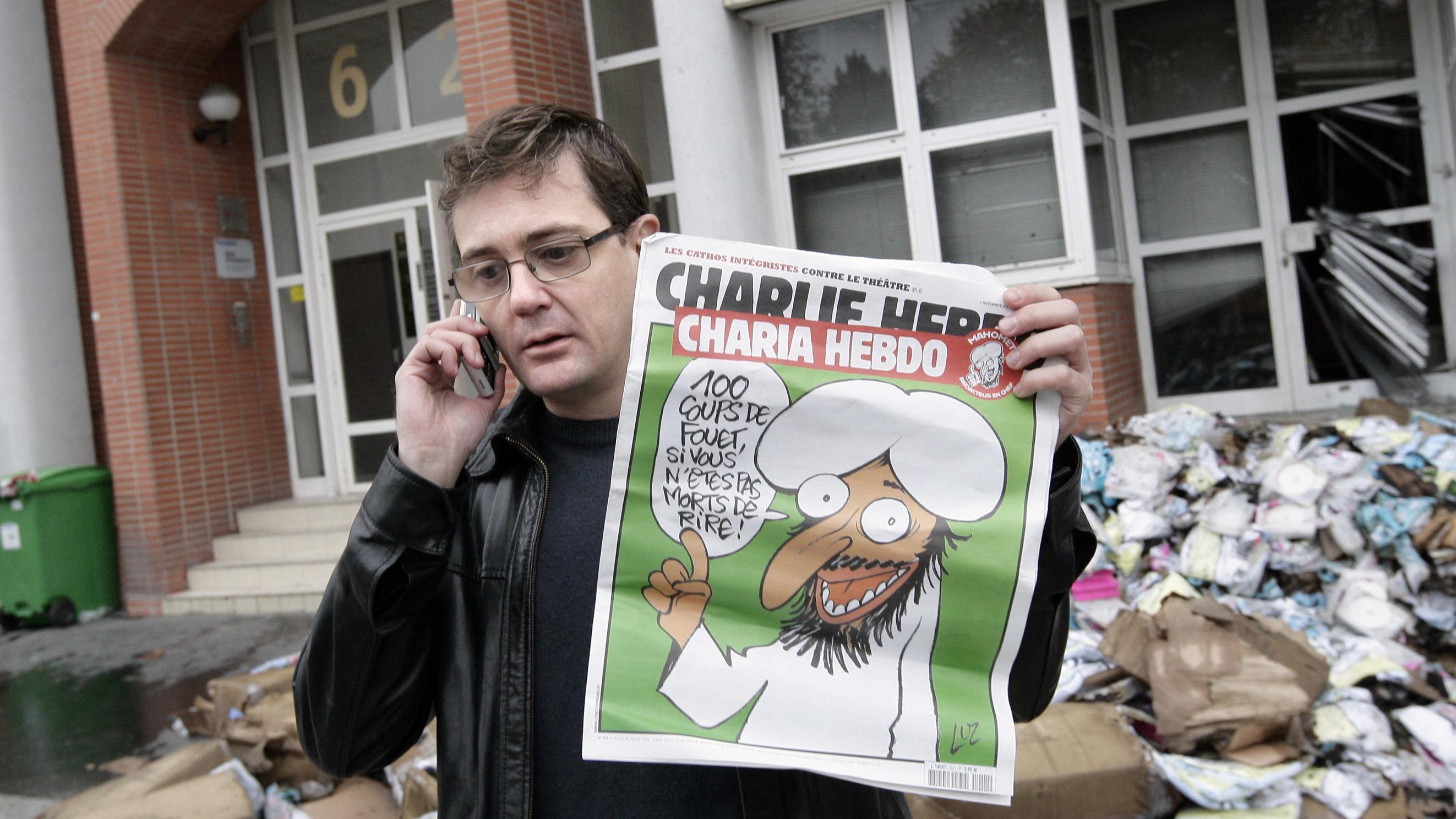Charlie Hebdo and Charb’s Family Advocate for Cartoonist’s Entry into the Panthéon
Charlie Hebdo and Charb's family request the cartoonist's posthumous entry into the Panthéon to honor his defense of freedom of expression and republican values.
- • Charlie Hebdo and Charb's family request his entry into the Panthéon.
- • Charb was killed in the 2015 jihadist attack at Charlie Hebdo.
- • Riss highlights Charb as embodying key democratic values.
- • The proposal aligns with anniversaries of the Muhammad cartoons and the 2015 attack.
Key details
Charlie Hebdo and the family of the late cartoonist Charb have called for his posthumous inclusion in the Panthéon, France's revered national mausoleum, to honor his commitment to freedom of expression and republican values. Charb was tragically killed during the jihadist attack on Charlie Hebdo on January 7, 2015, an assault that claimed twelve lives including eight editorial staff members.
The current editor of Charlie Hebdo, Riss, emphasized that Charb "ticks all the boxes" for this honor, highlighting that he was "a journalist executed for his opinions by terrorists on national soil." Riss clarified the intent behind the request is not simply to reward Charb personally but to enshrine the values he championed—freedom of expression, democracy, secularism, anti-racism, and social justice—into the fabric of French national identity.
This proposal coincides with two significant anniversaries: the 20th anniversary of the publication of the controversial Muhammad cartoons by the Danish newspaper Jyllands-Posten, which sparked violent protests, and the 10th anniversary of the Charlie Hebdo attack. These events are marked as pivotal moments in France’s recent history and the broader global conversation on free speech.
Charb’s family supports the initiative, viewing it as a necessary and unifying tribute that underscores the enduring importance of these core French values. The campaign for Charb’s panthéonisation aims to inspire reflection and commitment to the principles of democracy and expression that he embodied.
This article was translated and synthesized from French sources, providing English-speaking readers with local perspectives.
Source articles (2)
Source comparison
Anniversary of the attack
Sources report different anniversaries: 10th anniversary vs 20th anniversary
lefigaro.fr
"This initiative coincides with the 20th anniversary of the publication of the controversial Muhammad cartoons."
lemonde.fr
"This request coincides with the tenth anniversary of the jihadist attack on Charlie Hebdo."
Why this matters: Source 90615 states that the request coincides with the 20th anniversary of the publication of the Muhammad cartoons, while Source 90618 claims it coincides with the 10th anniversary of the jihadist attack on Charlie Hebdo. This discrepancy is significant because it affects the historical context and understanding of the timing of the request for Charb's entry into the Panthéon.
Latest news
France Returns the Djidji Ayôkwé Talking Drum to Côte d'Ivoire After Over a Century
Record 37 Days of Rain Triggers Ongoing Severe Flooding in Western France
Political Divisions and Social Tensions Intensify Following Quentin Deranque’s Death in Lyon
French Economy Minister Calls for Full Insurance Industry Mobilization Amid Devastating Storm Floods
France Boosts Social and Solidarity Economy with New Tools and Potential Tax Reforms in 2026
Saint-Nazaire Mayor Condemns Vandalism of Two Political Offices as Attack on Democracy
The top news stories in France
Delivered straight to your inbox each morning.


